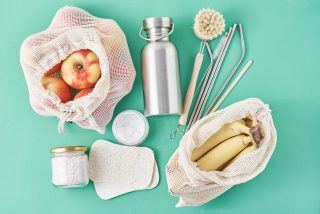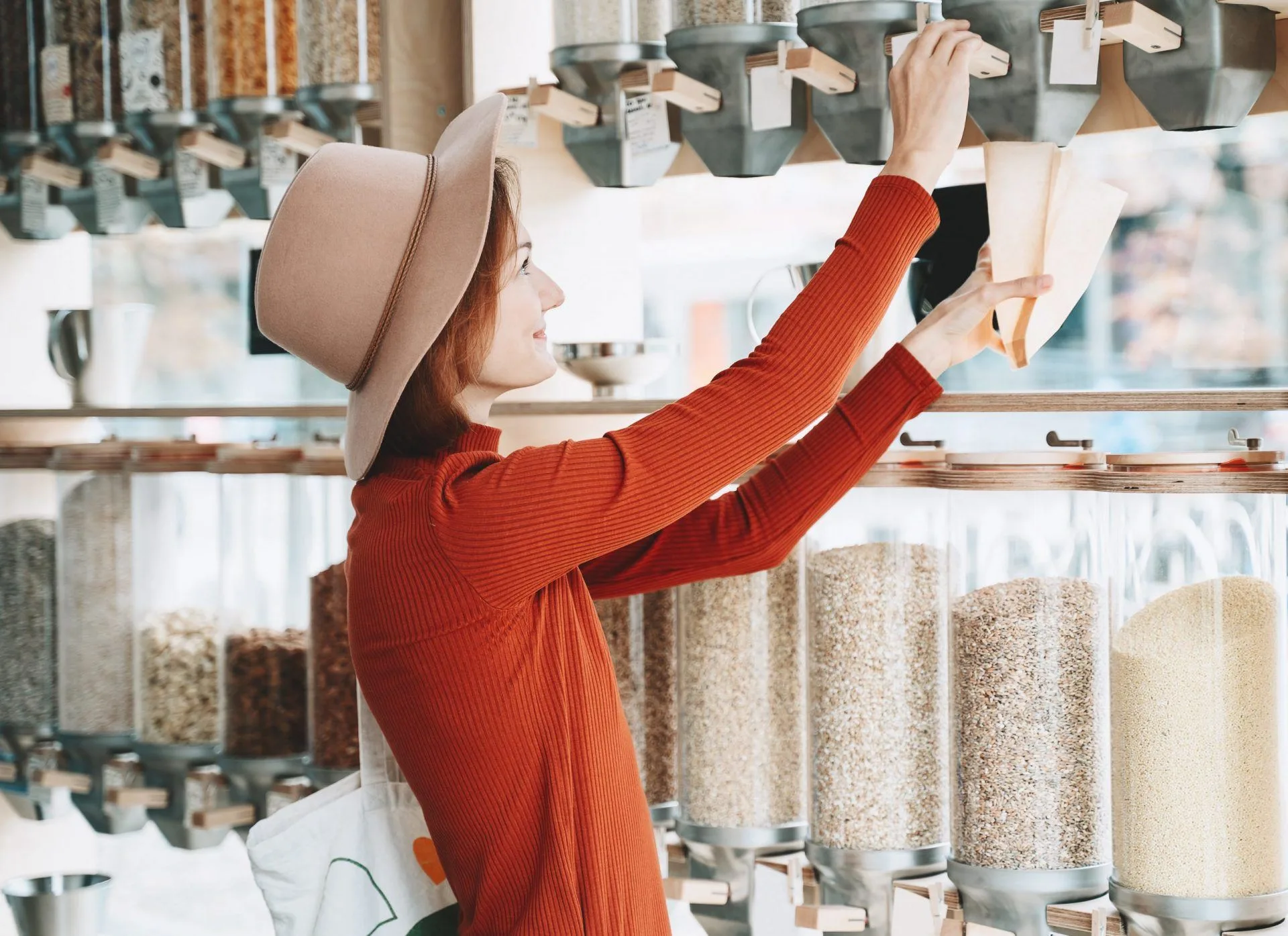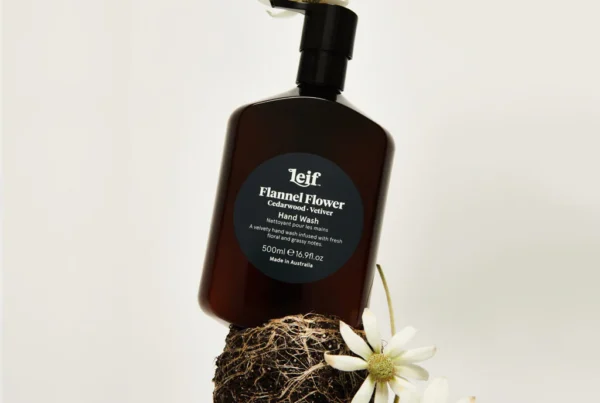Despite mounting efforts to address the problem, industry data shows that plastic waste is a still-growing issue. In 2021, humanity successfully generated around 139 million metric tons of plastic trash. According to a report by The New York Times, estimates indicate that around 139 million metric tons of plastic come from “virgin” petroleum products that have never been used or processed before. The ‘Great Pacific Garbage Patch’ is currently estimated to cover 1,6 million square kilometres. Single-use, non-biodegradable plastic is the biggest concern staring us in the face.
Last year alone, single-use plastics produced 450 million metric tons of planet-warming greenhouse gases. To address the issue presented by the continued use of plastic packaging, The Refillery is an Africa-first, retail innovation that aims to offer consumers an affordable, sustainable alternative grocer.
What is The Refillery?
The Refillery is a new concept that offers a planet-friendly grocery store. Consumers can enjoy a stylish, convenient, plastic-free, ‘weigh-and-pay’ shopping experience in the effort to stock and re-stock their pantry. They work hard to work with local suppliers, who ensure that all of their products are ethically sourced. And above all, everything on offer is free from all wasteful packaging normally associated with a trip to the grocery store.
We spoke with the co-owner, Dom Moleta, in an exclusive interview where he shared their dreams and how his family is working to offer a solution to the plastic problem.
Where did the idea come from?
Dom and his wife and co-owner Sam were in New Zealand (where he was born), and finishing up a contract there. They were looking at coming to South Africa, his wife’s home country. At that point, they were trying to figure out what they would do to make a living.
“We weren’t quite sure what we were going to do, but once here, we immediately noticed that there is not much of an opportunity to live a plastic-free lifestyle. Compared to other countries, like Australia, most of Europe, and the US, South Africa was a bit behind.
Over the years, we’ve been fortunate to live in a lot of different countries around the world. And we always saw stores that offer these kinds of options, but they can be done a little bit better. So we said hang on, why don’t we try and make that easier for people [in South Africa]? And that’s what got the ball rolling. We started The Refillery because we are really concerned about our beautiful planet and we want to try (in our own small way) to help.”
Since their start a few years ago, they’ve opened stores in Morningside and Fourways, both suburbs in Johannesburg, with the aim of branching out to Cape Town soon. Loyal customers love stocking up on pantry must-have items that are competitively priced and spending time in a completely eco-friendly store. The business also hopes to add fresh produce to its offering soon.
How does it work?
It’s super easy. Also, if you’re into having an organized kitchen or pantry with customized containers and labels, this is the perfect way to go about getting there. Consumers have the option of bringing their own jars or containers to the store for a refill, and you have your pick of the items that are on display. The Refillery offers an extensive range of dry goods, superfood items, condiments, herbs and spices, snacks and sweets, toiletries, cleaning products, and many other options.
Once you have chosen your products, they weigh them at the weigh stations, and you pay at the end.
They also stock a wide range of glass containers in store, so you can grab a jar and fill it up, weigh and pay at the end. If you don’t want to opt for jars, you can just use their recycled brown paper bags instead.
The Refillery is customized specifically for the South African market
For some South Africans, the idea of living plastic-free can seem like a niche concept, something that is only for the super eco-conscious. That’s why it is important for the business to convey the message that everyone can live a plastic-free lifestyle, and that it was accessible, easy, and affordable.
“For us, it’s about trying to make it sustainable for people over the long term,” Dom says.
They are big on supporting local
At the last count, they have about 50 local suppliers. For The Refillery, it’s really essential that they can continue to support as many local suppliers as they can because it not only supports the economy but is also what sets them aside from the competition.
“We can have input on our products, on the range and on their product development as well. We’ll often trial products with suppliers so we can give them real market feedback that they wouldn’t be able to get to otherwise.
[Let’s say] you’re a small business and you’re trying to compete against the big guys who aren’t interested in this. You’ve got a fully developed product and perfect packaging, and you can supply 10,000 of them tomorrow. [What we can offer is our flexibility] and we can provide this for our suppliers as well. So, so it kind of works out for them. And it works out for us as well for sure.”
The Refillery has great tips for going plastic free
-
Take it step by step
Start small. Rather than taking on the daunting challenge of going fully plastic-free in one leap, start with the basics. Opt for easy swap-outs that make no difference to your life. Otherwise, the effort will only last a few days because it becomes too much. If this happens, you will quickly become discouraged and give up.
For example, when your toothbrush needs replacing, buy a bamboo one, not a plastic one. Try using tooth powder or tooth tabs, rather than toothpaste that comes in a plastic tube. Try replacing one or two cleaning products with more eco-friendly options.
“The good news website is, we’re trialing tooth tablets and all-new natural toothpaste, which also comes in a biodegradable tube. We are hoping to get this out by the first half of this year.”
2. Work on your mindset
Once you start seeing how easy it is once you have a few small measures in place, you can go further and look at other areas of your life that you can render more sustainable.
“Yes, it’s a bit more admin for a start once you when you’re getting your head around it, and, and planning for it. But once you’re on board and kind of in the system, it’s just as easy to do as shopping normally.”
 3. Take on the farmer’s markets and bakeries with a basket
3. Take on the farmer’s markets and bakeries with a basket
When it comes to shopping, farmer’s markets offer incredible options, and by taking along a basket or your own cloth bags, you can remove the packaging element completely. Chances are you will discover whole new items and meal ideas once you get into it. You can also try visiting your local bakery for fresh, unprocessed, delicious loaves without any plastic.
4. Don’t get discouraged if you cannot banish all plastic from your life
“It’s not about perfection, it’s about progress,” says Dr. Salazar, a social scientist who studies what motivates people to support environmental causes, in an interview with A.J. Jacobs, a journalist for The New York Times. “Believe it or not, individual behavior does matter. It adds up. Remember, it’s not about plastic being the enemy. It’s about single-use as the enemy. It’s the culture of using something once and throwing it away.”
For every person who makes an effort to reduce or eliminate their use of single-use plastics, the enormous amount of plastic that goes in the wrong direction gets reduced.
Want to know more?
Find out how plastic-eating enzymes can help combat waste polyester clothing.



![women [longevity live]](https://longevitylive.com/wp-content/uploads/2020/01/photo-of-women-walking-down-the-street-1116984-100x100.jpg)










